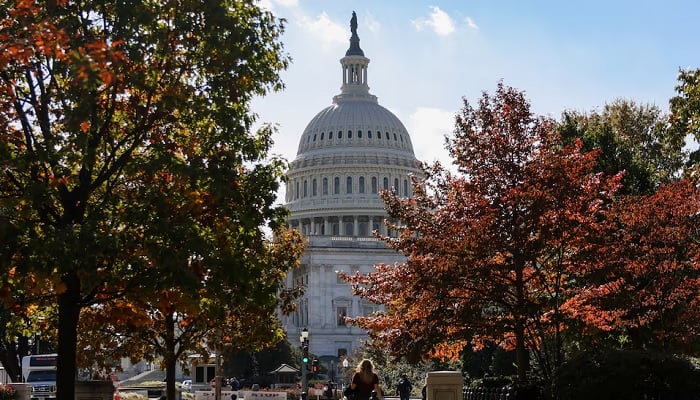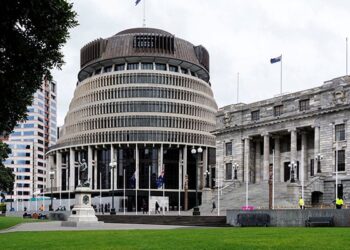Select Language:
A deal to end the longest-ever US government shutdown cleared Congress on Wednesday, with the House voting to reopen programs that support food assistance, pay hundreds of thousands of federal workers, and restore a strained air traffic control system.
The Republican-led House approved the package by a 222-209 vote. President Donald Trump indicated he would sign it later that day, bringing an end to the shutdown. The White House confirmed Trump’s support largely kept his party united, despite strong opposition from House Democrats, who criticized the defeat of their effort to secure additional health insurance subsidies.
The bill, already passed by the Senate, would keep the government funded through January 30 and would add roughly $1.8 trillion annually to the current $38 trillion national debt.
Arizona Republican Representative David Schweikert compared the shutdown to a chaotic episode from a classic sitcom, saying, “I feel like I just lived a Seinfeld episode. We just spent 40 days and I still don’t know what the plot was.” He hoped the standoff would be resolved quickly, expecting it to resemble a brief, 48-hour crisis rather than a prolonged dispute. Schweikert questioned whether intense anger had become policy.
No firm promises were made regarding healthcare subsidies, despite recent high-profile elections that many Democrats believed would give them leverage to extend vital health insurance support due to expire at year’s end. Although the deal paves the way for a Senate vote in December on these subsidies, House Speaker Mike Johnson hasn’t committed to a similar move.
Democratic Representative Mikie Sherrill, who is set to become New Jersey’s next governor, expressed her opposition to the funding bill on the House floor. Before resigning next week, she urged colleagues to push back against what she called an administration that “takes food away from children and rips healthcare coverage.” She also encouraged the nation to “stand strong” and referenced Navy mottoes to emphasize resilience.
Despite the partisan disagreements, neither side claims a decisive victory. A recent Reuters/Ipsos poll shows an almost even split among Americans, with 50% blaming Republicans and 47% blaming Democrats for the shutdown.
The House reconvened after a recess that lasted since mid-September, a pause intended to exert pressure on Democrats. The session also set the stage for votes open records related to Jeffrey Epstein, a late convicted sex offender, a topic that has divided Congress and drawn resistance from Johnson and Trump.
Later, Johnson swore in Democrat Adelita Grijalva, who won a special election to fill her late father Raul Grijalva’s seat in Arizona. She provided the final signature needed to force a House vote on the Epstein records, just hours after Democrats released new documents on the case.
Once the government’s funding is secured, attention may turn to investigations into Epstein’s life and death, which have spawned numerous conspiracy theories. The funding bill also enables eight Republican senators to seek damages against the federal investigation into the January 6 insurrection, claiming privacy violations. It makes it illegal in most cases to access a senator’s phone data without disclosure and allows those affected to sue the Justice Department for up to $500,000 in damages, including legal fees.






